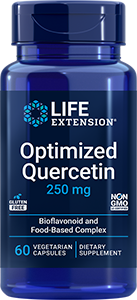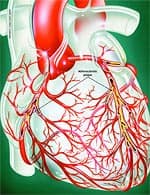- Science & Research
- Science News
- Newsletter
- 2014
- September 2

Newsletter
Newsletter
Low Dose Aspirin Linked To Decreased Blood Clot Risk
Low dose aspirin linked to decreased blood clot risk |
|||
Tuesday, September 2, 2014. A study described on August 25, 2014 in the American Heart Association journal Circulation affirmed that regular intake of low dose aspirin may help reduce the risk of recurrent venous blood clots as well as cardiovascular events. "The study provides evidence that after a first venous thrombosis or embolism, daily aspirin reduces the risk of another event, without causing undue bleeding," announced lead researcher John Simes, MD, of the University of Sydney. "This treatment is an alternative to long-term anticoagulation and will be especially useful for patients who do not want the inconvenience of close medical monitoring or the risk of bleeding." For the current study, Dr Simes and his associates analyzed data from the WARFASA and ASPIRE trials. Participants in both trials received 100 milligrams aspirin or a placebo daily for a median period of 24.2 months. Among 1,224 men and women included in the combined analysis, venous thromboembolism occurred in 18.4% who received a placebo and 13.1% assigned to aspirin, resulting in a 32% reduction among aspirin users. Subjects who received aspirin additionally experienced a 34% reduction in the risk of major vascular events, including symptomatic venous thromboembolism, heart attack, stroke and cardiovascular death, in comparison with the placebo group. The risk of clinically relevant bleeding was not significantly different between the two groups. "The study provides clear, consistent evidence that low-dose aspirin can help to prevent new venous blood clots and other cardiovascular events among people who are at risk because they have already suffered a blood clot," concluded Dr Simes. "The treatment effect of aspirin is less than can be achieved with warfarin or other new generation direct thrombin inhibitors, which can achieve more than an 80% reduction in adverse circulatory and cardiopulmonary events," he noted. "However, aspirin represents a useful treatment option for patients who are not candidates for anticoagulant drugs because of the expense or the increased risk of bleeding associated with anticoagulants." "Aspirin will be ideal in the many countries where prolonged anticoagulant treatment is too expensive," he added. "A major benefit of this treatment is its cost-effectiveness. Aspirin is cheap, but it will save the treatment costs of the many recurrent clots that are prevented. This could mean a saving of millions of healthcare dollars worldwide." |
|||
| What's Hot | |||||
| Higher magnesium levels linked to lower risk of stroke | |||||
The study, described online on August 12, 2014 in the American Heart Association journal Stroke, included 459 Nurses' Health Study participants who experienced an ischemic stroke prior to June 2006 and an equal number of control subjects matched for age, ethnicity and other factors. Blood samples collected between 1989 and 1990 were analyzed for plasma magnesium. Subjects whose magnesium levels were among the lowest fifth of participants had a risk of stroke that was 34% higher than those whose levels were among the top fifth. Those whose levels were lower than 0.82 micromoles per liter had a 57% greater risk of total ischemic stroke, and a 66% higher risk of thrombotic stroke than women who had higher levels. To authors Sally N. Akarolo-Anthony and her associates' knowledge, the association between magnesium levels and ischemic stroke risk has been evaluated in only one other prospective study. They remark that although only 1% of the body's magnesium exists in plasma, levels are strongly correlated with intracellular magnesium and could be a better indicator of the mineral's status than dietary intake. They note that risk factors for stroke, including diabetes and hypertension, have been associated with reduced magnesium levels, and that there is evidence that magnesium could help protect against blood clot formation. "The results of this study suggest that low plasma magnesium may be associated with increased risk of ischemic stroke," the authors conclude. "If confirmed, our findings may have significant public health impact because magnesium deficiency is potentially modifiable." |
|||||
Life Extension Clinical Research Update Study Objective: Assess the effect of a nutritional supplement in support of cholesterol health in males and females over the course of 60 days. To Qualify:
Your Involvement:
Register For This Study https://www.lifeextension.com/clinicalresearch/ClinicalTrials.htm |
||||||
| Highlight | ||||||
Life Extension Magazine® September 2014 E-issue Now Available |
||||||
|
As we see it How to turn eight pennies into $600, by William Faloon Reports Reduce dangerous fat from food, by Roger Simmons Broad-spectrum disease-fighting properties of tart cherries, by Michael Downey Quercetin's unique protective mechanisms, by Michael Enders The surprising longevity benefits of vitamin K, by Judy Ramirez Departments In the News, by D. Dye and A. Kessler Wellness profile: Patricia Richardson, by Jon Finkel Author interview: Michael Ozner, MD |
|||||
Health Concern
|
||||||
| Latest Products | |||||
 |
Skin Restoring Phytoceramides with Lipowheat®, 30 vegetarian liquid capsules Item #01596
|
||||
The ceramides that young skin naturally produces to retain its supple appearance are identical to those present in wheat … which is why wheat-derived oils have been used topically for centuries as a natural moisturizer. But you can't get enough ceramides from topically-applied wheat germ oil to have a long-term impact on your skin's appearance. And they don't appear in sufficient concentration in your diet. So we've brought together these skin-nourishing oils in an oral formula with Lipowheat®, a proprietary ceramide blend that offers nutritional support for aging skin, to complement topical products you may already use. Ceramides have been available to Japanese women as a functional food since 2000. The hydrating action of Lipowheat® ceramides has proven so effective in clinical trials, they're now approved as a dietary ingredient by the FDA. For example, after three months of ingesting 200 mg a day of Lipowheat®, a group of people reported dramatic improvement in the look and feel of their skin. |
|||||
 |
Optimized Quercetin, 250 mg, 60 vegetarian capsules Item #01309
|
||||
Quercetin is a bioflavonoid that supports cellular health and function. In human cell culture studies, it has been shown to block the manufacture and release of inflammation-causing substances, which can help support a healthy immune response to the seasonally changing environment. It also helps promote a healthy cardiovascular system by preserving endothelial integrity and supporting healthy blood glucose levels for those already within normal range. Optimized Quercetin is a proprietary formulation that sets the "gold standard" for high-quality quercetin derived from a food-source blend. |
|||||
| Related Life Extension Magazine® Articles | |||
| How to Circumvent 17 Independent Heart Attack Risk Factors |
Why Our Arteries Become Clogged As We Age | ||
 |
 |
||
The latest news on aging, nutrition, and vitamins
Lab
Testing
How Life Extension lab testing works



